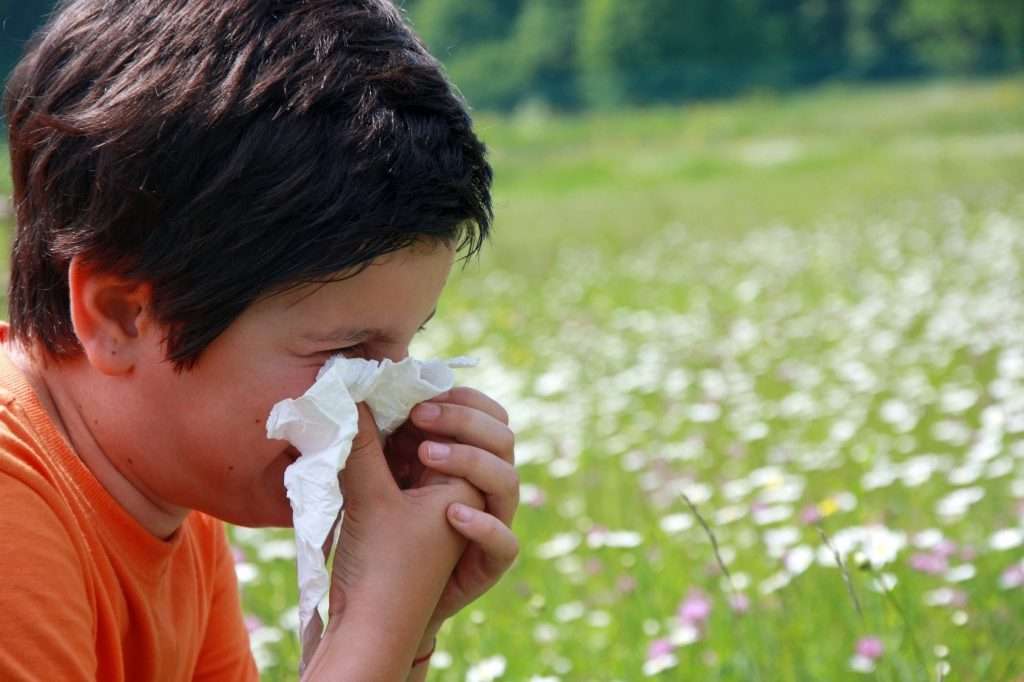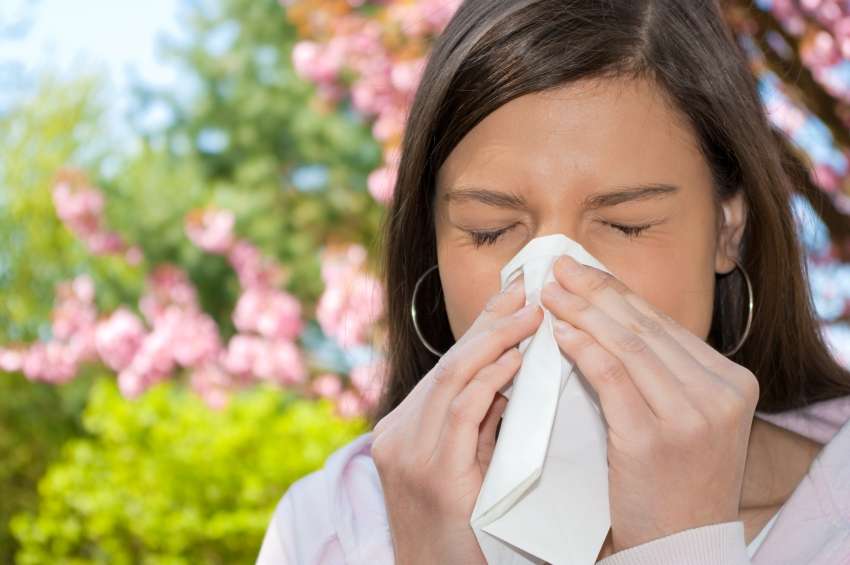Allergies And Postnasal May Drip Lead To Foul Breath
Respiratory tract infections such as the flu, bronchitis, and sinusitis are common causes of bad breath. When respiratory tract infections break down or inflame the tissues in the respiratory system, it can trigger the production of bacteria-feeding cells and mucus.
Allergies and postnasal drip may also be what causes bad breath because these conditions tend to clog the nose. This nasal congestion may force you to breathe through your mouth, which can lead to dryness and the growth of bacteria that cause foul breath.
Sleep Apnea Can Cause Morning Breath
Morning breath may seem normal after a night of sleeping. Saliva production decreases during sleep, which gives odor-producing bacteria an opportunity to multiply and grow.
But the slowed production of saliva during sleep can sometimes be caused by leaving your mouth open for long periods of time. People with sleep disorders such as sleep apnea and snoring may have trouble breathing through the nose and are more likely to breathe through their mouths, which is a cause of bad breath.
Sinusitis And Chronic Nasal Congestion And Bad Breath
Sinusitis is an inflammation of the nasal sinuses. It may be a short-term, acute infection. However, sinusitis can sometimes be a long-term, chronic condition, complicated by allergies and/or structural problems in the nose. It can cause chronic nasal congestion and greatly affect your quality of life.
Nasal sinuses are located within the cheeks, around and behind the nose. It is believed that their main function is to warm, moisten and filter the air in the nasal cavity. They also help us vocalize certain sounds.
The signs and symptoms of sinusitis vary depending on the severity of the inflammation and which sinuses are involved, but symptoms may include:
- Thick, green or yellow colored mucus from the nose or down the back of the throat
- Loss of sense of smell or taste
- Bad breath/bad taste in the mouth
- Sore throat/cough
Read Also: Best Generic Zyrtec
Bacteria That Take Up Residence On Your Tongue
The back of the tongue, especially, has many grooves and crevices, making it the perfect dwelling place for odor-producing bacteria to grow and emit VSCs.
What to do about it:While there’s no harm in using a tongue scraper to remove the gunk that accumulates on your tongue, the American Dental Association says there’s actually not that much proof that this gadget makes a substantial difference. “There’s probably a small effect, and it doesn’t last very long,” says Mary Lynn BosmaMary Lynn Bosma, DDS,Director of Oral Health, Johnson & Johnson, DDS, Director of Oral Health, Johnson & Johnson.
Part of the issue is that most bad-breath bacteria accumulate all the way at the back of the tongue. A tongue scraper can’t reach that far without making you gag, and neither can your toothbrush, Dr. Aldredge points out. So a good way to effectively target this area is to use a safe-to-swallow substance that fights bad-breath bacteria and neutralizes VSCs.
One option: the new Listerine® Ready! Tabs, which dissolve into a liquid upon chewing that is safe to swallow.
“They’re designed to stimulate saliva, reduce the activity of the bacteria that cause bad breath and neutralizenot just disguiseodor,” says Patricia GolasPatricia Golas, Ph.D.,Principal Scientist and R& D Lead, Oral Care Research, Johnson & Johnson, Ph.D., Principal Scientist and R& D Lead, Oral Care Research, Johnson & Johnson.
Nasal Polyps And Post Nasal Drip

Nasal polyps are soft, jelly-like overgrowths of the sinus lining that look like grapes on the end of a stalk. They do not always cause symptoms, but as they usually grow through the tunnel that connects the sinuses to the nose, they can cause a blocked nose. If the tunnel becomes too blocked, sinus infections can occur.
These infections can cause bad breath due to run-over of mucus post-nasal drip.
Recommended Reading: Does Histamine Cause Bronchoconstriction
Gut Breath: Bad Breath Causes And The Digestive System
Digestive diseases
The digestive system causes many cases of bad breath. Any condition that allows air from the stomach to move up into the esophagus and the oral cavity may cause halitosis. However, bad breath caused by the gut is usually a sign of general imbalance in the digestive system.
Digestive causes may include:
- GERD symptoms or GORD , which causes acid reflux . Any kind of condition that causes stomach acid/heartburn/stomach distress may cause an odor, especially if youre aware of an unusual taste this is nearly always accompanied by a smell.
- Bloating, gas, and burping: any digestive condition that makes you belch can cause bad breath. These include imbalances seen in digestive conditions like IBS, food intolerances or high sugar consumption.
- Bowel obstruction or constipation: when your body is not digesting food, an unfortunate side effect can be bad breath that resembles feces.
Bad Breath: Embarrassing But Fixable
Common causes of halitosis
Dr. Rick can likely determine if your halitosis comes from one or more of the common causes:
- Food particles and bacteria in the teeth or gums
- Gum disease and plaque
- Other bodily illnesses or diseases
Scottsdale dentists effective plan for addressing halitosis
Dr. Rick Dentistry offers the following plan:
Don’t Miss: Cetirizine For Allergic Reaction
If Your Asthma Symptoms Are Caused By Allergies Take Steps To Control Knownor Potential Triggers In Your Environment
Allergy-proof your house for dust, mold, cockroaches, and other common indoor allergens to which you are allergic.
Reduce your outdoor activities when the pollen count or ozone level is high.
Choose foods that dont contribute to your asthma or allergy symptoms.
Evaluate your workplace for possible allergens and take the necessary steps to reduce your exposure to them.
In order to determine relevant triggers, you may want to seek consultation with an allergist who can further define these triggers.
In addition, anyone with asthma should consider getting an annual flu shot. Older adults also should talk with their internist about getting a pneumonia vaccination.
Trimethylaminuria Breath: Bad Breath Causes And Genetic Disease
An underdiagnosed disorder, known as TMAU or fish-odor syndrome, may affect as many as 1% of U.S. citizens. It causes a body odor and breath odor thats often described as fishy, but sometimes resembles rotting eggs, garbage, or urine.
This genetic disorder affects the ability to break down choline, leading to a buildup of trimethylamine. The fishy odor is excreted via sweat, urine, saliva, blood, and air exhaled through the mouth and nostrils. Patients with trimethylaminuria may need to eliminate or reduce their intake of high-choline foods such as broccoli, beans, eggs, legumes, kidney, and liver.
Also Check: Lip Blister Allergic Reaction
Your Medications Are Partly To Blame
Hundreds of commonly used medications can dry out your mouth, contributing to rank breath. Some of the most common culprits are meds that treat anxiety, depression, high blood pressure, pain and muscle tension.
Check the drugs list of side effects to see whether dry mouth is on it, and then talk to your doctor about switching to a medication that doesnt reduce saliva.
You Need To Pop Fewer Mints
Breath mints may promise fresher breath but that promise is fleeting, according to research from the American Chemical Society. That minty fresh scent is likely only masking the underlying odour problem and, even worse, the sugar in regular mints can feed stinky bacteria, making your problem worse. Skip the mints and focus on brushing and flossing, the researchers say. If you must indulge, a few ingredients like xylitol and magnolia tree bark are proven to kill bad bacteria, so look for sugar-free products containing those.
Don’t Miss: Antibiotics Make Me Itchy
Foods That Can Trigger An Asthma Attack
Peanuts and Nuts Can Trigger An Asthma Attack
According to the American Academy of Allergy, Asthma and Immunology , more than 3 million people in the U.S. have allergies to various foods, including peanuts. Peanut allergies are the most common of the nut allergies, even though a peanut is not technically a nut. Peanut allergies can cause serious allergic reactions and even , a condition that requires emergency medical care.
Allergic responses can happen to anyone at any age, even if you have been eating a certain food for many years. Some of the other foods that may trigger asthma are milk and other dairy products, eggs, soy and wheat, and seafood. An allergic reaction to eating different types of seafood can also be serious and can cause anaphylactic shock. Seafood allergies can also trigger an asthma attack.
Dairy and Eggs Are Capable of Triggering Asthma Attacks
Children are most often affected by dairy and egg allergies, but adults can have them as well. Doctors often suggest soy milk if a patient is allergic tomilk and dairy products, but soy is also one of the most common allergy-causing foods. It is highly possible that someone allergic to dairy foods or eggs could have an asthma attack after eating ice cream or another food with a high dairy and/or egg content.
Soy and Wheat Might Cause An Asthma Attack
Upper Respiratory Infections Or Sinusitis

It’s not uncommon to have bad breath if you have a cold or a sinus infection, and taking decongestants or antihistamines for the symptoms can worsen the problem by drying out your mouth. Another reason you might have halitosis with a cold or sinus infection is because of the post-nasal drainage that accompanies the infection. When your sinuses or respiratory passages are inflamed, you produce more mucous that drains down the back of your throat. Bacteria in the mucous produces substances that cause bad breath. Fortunately, bad breath often goes away with the infection. Many of these infections are viral and clear on their own, but some may be bacterial and need antibiotic therapy.
You May Like: Latex Food Allergies List
Stop Bad Breath Linked To Tooth Decay And Gingivitis
When the enamel on your teeth erodes, food particles can get deposited in those holes, called dental caries. Because brushing your teeth can’t remove these food deposits, they can eventually grow bacteria, which is what causes bad breath.
Gingivitis is another medical condition that is a cause of bad breath. When the gum becomes inflamed with bacteria, it can result in severe pain and funky-smelling discharge.
Alternative Pet Ideas For Children With Asthma
If your children love animals but cant keep a household pet, here are some other ways they could feel connected to an animal:
- Sponsor an animal through a zoo, safari park or charity scheme.
- Get your child a substitute pet such as an interactive toy like a Furby or Little Live Pet, or an animal app. Virtual pets let children feel like theyre caring for an animal without the risk of triggering asthma symptoms.
Also Check: Twix Allergens
Best Toothpaste For Bad Breath
Whether its from seasonal allergies, onions or coffee, you can give bad breath the brush-off with Oxyfresh Fresh Breath Lemon Mint Toothpaste. Its the perfect pairing with our alcohol-free mouthwash and clinically proven for better breath protection.
Unlike toothpastes that only MASK bad breath through artificial mint flavors and alcohol, only Oxyfresh Fresh Breath Toothpaste is formulated with Oxygene®, our exclusive, non-toxic ingredient that neutralizes bad breath-causing bacteria right at the source. No cover-ups! The result is true fresh breath that lasts all day.
Foods That Can Trigger Asthma Attack
People who suffer from asthma are often allergic to certain foods as well. Coming into contact with these food allergies can lead to severe allergic reactions. Signs and symptoms of asthma such as wheezing, difficulties breathing, coughing, etc., will get worse. Certain foods can cause a greater risk for a severe and life threatening asthma attack. For this reason, it is very important to avoid the foods that you are allergic to. Good news is that only few people who suffer with asthma need a special diet.
Recommended Reading: Robitussin Allergy & Cough
Anaphylaxis Is Potentially Life Threatening
An anaphylactic reaction, or anaphylaxis, is an extreme allergic reaction that can be life threatening without prompt medical treatment. A life-saving injection of adrenaline, administered through an auto-injector , is required to treat anaphylaxis to prevent permanent injury or death.
The onset of symptoms can occur immediately or steadily get worse over time.
Some of the symptoms of anaphylaxis include:
- persistent cough
- a strange taste in the mouth
- swelling of the tongue
How Do Antihistamines Cause Bad Breath
Antihistamines are medications that treat allergic reactions. They work by reducing levels of histamine, a chemical that causes allergy symptoms.
However, antihistamines also have anticholinergic effects. This means they block the action of acetylcholine, a neurotransmitter. Neurotransmitters are chemical messengers released by nerve cells.
Acetylcholine is involved in normal saliva function and flow. Saliva is needed to wash away bacteria, including those that cause bad breath. It also washes away food and debris, which the bacteria feed on.
However, the anticholinergic effect of antihistamines blocks acetylcholine, decreasing salivary flow. This increases dry mouth, resulting in bad breath.
But this side effect isnt specific to antihistamines. Many other medications can also cause bad breath, such as:
Its possible to control bad breath using home remedies and certain habits. This includes managing the effects of antihistamines and increasing moisture in the mouth.
Home remedies to try include:
Additionally, only use antihistamines as directed by your doctor. Avoid taking them more than you need to.
If youre concerned about bad breath due to antihistamines, talk to your doctor. They might be able to provide guidance or alternatives.
Also, visit a doctor if you notice any of the following symptoms:
- persisting bad breath for several weeks, even with home remedies
- symptoms of a respiratory infection, such as fever or coughing
Read Also: Zyrtec Dissolve
Get Cnn Health’s Weekly Newsletter
every Tuesday from the CNN Health team.
People with severe, chronic kidney failure can have breath with an ammonia-like odor, which the US National Library of Medicine says can also be described as urine-like or fishy.
A sign of liver disease is fetor hepaticus, a strong, sweet, musty odor on the breath. It occurs because a diseased liver cannot fully process limonene, a chemical found in citrus peels and some plants. Scientists are trying to develop a breath test based on the smell that can alert doctors to early stage cirrhosis of the liver, thus triggering treatment.
Metabolic Breath: Bad Breath Causes And Certain Diet Types

Ketone breath
Low-carb or ketogenic diets can force your body to burn fat for fuel instead. This produces chemicals called ketones that are released in the breath, producing an odd fruit-and-nut or acetone odor.
The good news is that if you have bad breath, youre probably sticking to that low-carb diet well and often, the bad breath is a short-term problem while your body adjusts to fat metabolism.
Hunger breath
This is caused by regularly skipping meals, or fasting, which can reduce the amount of saliva in your mouth. A dry mouth may prevent clearance of harmful bacteria, causing a sulfuric odor.
Don’t Miss: Penicillin Side Effects Itching
Anatomy Of Allergy And Anaphylaxis
Allergies typically develop for two reasons: first, genetic predisposition and second, environmental factors, especially in early childhood. According to the “hygiene hypothesis,” the immune system in people who aren’t exposed to a wide variety of germs early in life is more likely to incorrectly develop an allergic immune reaction to harmless foreign antigens.
Having an allergy means that your immune system reacts to an allergen as a threat and mounts a defense against it each time it comes in contact with it. Your first contact with the allergen may produce no obvious symptoms, but it stimulates the production of large amounts of an antibody protein called immunoglobulin E, or IgE. In allergy-prone people, IgE is produced in response to generally harmless substances, such as a food or medication. IgE locks onto immune cells to prepare for the next encounter with the allergen a process known as sensitization. Now, whenever you’re subsequently exposed to the allergen, IgE signals the mast cells and basophils to disgorge inflammation-causing chemicals called mediators. The symptoms depend on the mediator and the tissue in which it’s released for example, the mediator histamine can cause blood vessels to dilate and airways in the lungs to narrow.
Certain cardiovascular medications can lower the effectiveness of epinephrine, the key treatment for anaphylaxis so if you’re taking one of those medications and have allergies, consult your clinician.
Allergies Vs Sinus Infection
Allergies can develop at any point in your life. While allergies tend to come up during childhood, its possible to develop allergies to new substances as an adult.
This type of reaction is caused by a negative response to a substance. Your immune system responds by releasing a chemical called histamine, which can then cause symptoms such as headache, sneezing, and congestion. Its also possible to feel foggy and develop a skin rash.
Severe allergies can lead to a cold-like condition called allergic rhinitis. With allergic rhinitis, you can have the above symptoms as well as itchy eyes. This itchiness is one of the key distinguishing factors between allergies and sinusitis.
A sinus infection, on the other hand, occurs when your nasal passages become inflamed. Sinusitis is most often caused by viruses. When the nasal cavity gets inflamed, mucus builds up and gets stuck, further compounding the problem.
Along with nasal congestion and headache, sinusitis causes pain around your cheeks and eyes. Sinus infections also cause thick, discolored mucus, and bad breath.
Compare the following symptoms to see if you have allergies or a possible sinus infection. Its also possible to have both conditions at the same time.
| Allergies |
Recommended Reading: Clariin

